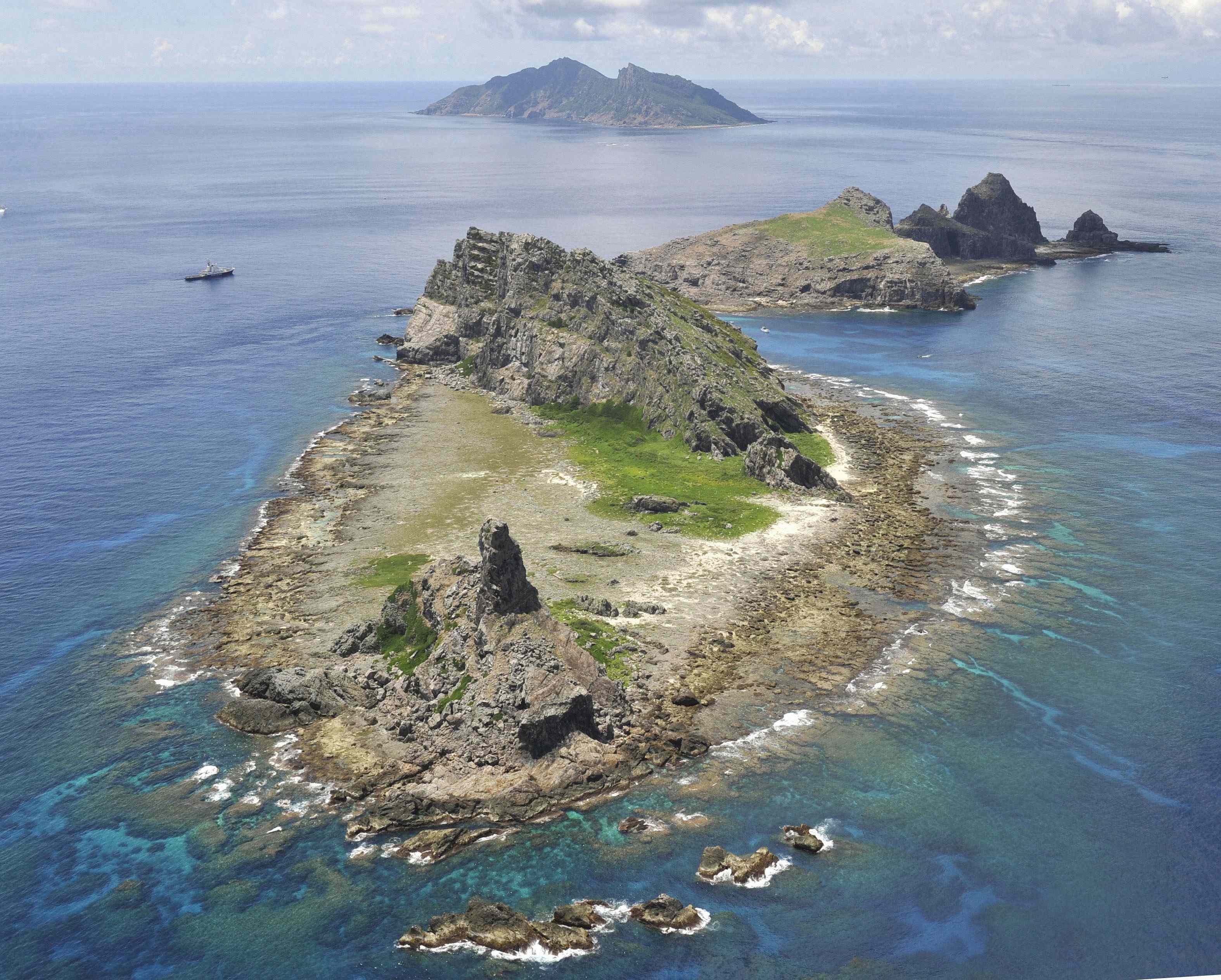TOKYO/WASHINGTON – Japan and ally the United States sharply criticized China's move to impose new rules on airspace over islands at the heart of a territorial dispute with Tokyo, warning of an escalation into the "unexpected" if Beijing enforces the rules.
China's government-run Xinhua news agency published coordinates for a newly established "East China Sea Air Defense Identification Zone," which covers most of that sea and includes the skies over the disputed islands.
Beijing warned that it would take "defensive emergency measures" against aircraft that failed to identify themselves properly in the airspace.
Japanese Foreign Minister Fumio Kishida said the move was unacceptable. "It could well lead to an unforeseen situation," he told reporters on Sunday.
Ties between the Asian powers, the world's second and third biggest economies, have been strained for months by the dispute over the islands in the East China Sea, called the Diaoyu by China and the Senkaku by Japan. The islands are currently under Japanese administrative control.
Saturday's announcement suggests that foreign aircraft merely passing through that zone would have to follow China's procedures - or face unknown, potentially dangerous consequences.
U.S. Secretary of State John Kerry urged China to exercise caution and restraint, saying freedom of overflight was essential to stability and security in the Pacific.
"We urge China not to implement its threat to take action against aircraft that do not identify themselves or obey orders from Beijing," he said in a statement.
"We remain steadfastly committed to our allies and partners, and hope to see a more collaborative and less confrontational future in the Pacific."
A U.S.-Japan security treaty commits Washington to intervene in defense of Japan if there is an attack on Japanese-administered territory. The United States has a hefty military presence in Japan, including on the southern island of Okinawa, which is close to the disputed isles.
Xinhua said in a commentary the "air zone could contribute to regional peace and security by curbing the increasing rampancy of Japan's right-wing forces, as well as the continuous and dangerous provocations of Japanese politicians, which even Washington should be vigilant against".
Tensions flared last year when the government bought three of the islands from a private landowner to fend off a potentially more inflammatory purchase by the Tokyo metropolitan government, at the time headed by nationalist governor Shintaro Ishihara.
Tokyo lodged a strong protest through the Chinese embassy, calling the action "totally unacceptable" and warning that the overlap of the air defense identification zone could lead to an "unexpected occurrence of accidents in the airspace".
A senior diplomat in China's Tokyo embassy, Han Zhiqiang, dismissed Tokyo's protests, saying in a statement that "Japan has no right to make irresponsible remarks".
Han said the Chinese government's aim was to defend its national sovereignty and territorial airspace and was not aimed at a specific country or target. He added it did not affect the freedom to pass through the airspace.
Xinhua said the latest rules came into force on Saturday and China's air force conducted its first patrol over the zone. The patrol included early warning aircraft and fighters, it said.
Japan, for its part, scrambled fighter jets on Saturday afternoon against two Chinese reconnaissance planes over the East China Sea, the Japanese Defense Ministry said.
Hagel says move is destabilizing
In a strongly worded statement, U.S. Defense Secretary Chuck Hagel called Beijing's move a "destabilizing attempt to alter the status quo in the region".
"This unilateral action increases the risk of misunderstanding and miscalculations," he said.
One U.S. official, speaking on condition of anonymity, said Beijing's move was being interpreted as "a direct challenge" to Japan's operations in the area, believed to be surrounded by energy-rich seabed.
Security experts echoed the concerns about an escalation, saying that if China were to enforce the air defense identification zone, a non-military Chinese aircraft's flying into it could lead to a military face-off between the two sides.
"If two fighter aircraft - one from their side and one from our side - meet in the air, that would create a precarious situation," said Narushige Michishita, director at Japan's National Graduate Institute for Policy Studies. "That's very dangerous."
Tensions in the region are expected to be a topic of discussion when Vice-President Joe Biden travels to China, Japan and South Korea in early December.
The United States has not taken a position on sovereignty issues in the regional maritime disputes, but has stressed the need for the free flow of commerce, a reduction in tensions, and peace and stability in the region.
China's move comes on the heels of a visit there last week by a delegation of Japanese business leaders in the hopes of improving economic ties. Trade between the two countries amounts to $250 billion annually, but Japanese Prime Minister Shinzo Abe and Chinese President Xi Jinping have yet to hold an official meeting.





















































